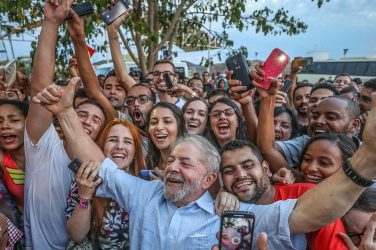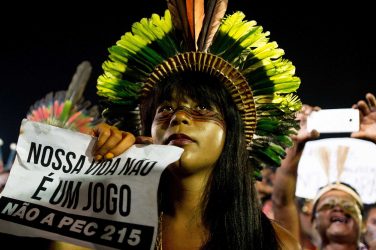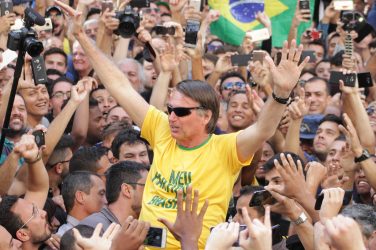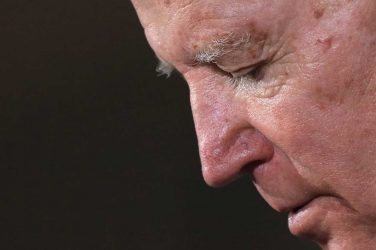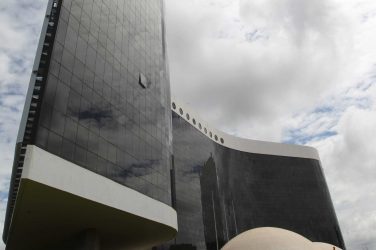President Michel Temer posted on his Twitter account celebrating the Gross Domestic Product (GDP) result for the first quarter of this year, which was 1% bigger than the GDP of the last quarter of 2016: “The recession is over!” he said.
Data on Brazilian economy was released this June 1st by the Brazilian Institute of Geography and Statistics (IBGE). Brazil’s Gross Domestic Product (GDP) grew 1% in the first quarter of this year compared to the fourth quarter of last year (seasonally adjusted).
This has been the first increase after two consecutive years of decline. Compared to the same period of 2016, the GDP was down by 0.4%.
In absolute numbers, the GDP totaled US$ 493.2 billion in the first quarter of 2017.
In his Twitter post, the president cited measures adopted by the government and the pension and labor reforms currently being discussed in Congress. “Brazil is growing again. And the reforms will make it grow even more,” the president twitted.
Earlier, Finance Minister Henrique Meirelles also commented on the result: “This is a historic day. After two years, Brazil emerged from the worst recession of the century.”
According to the minister, the significant growth of the economy at the beginning of this year shows there has been a trend shift.
“There’s more we need to do to achieve full economic recovery, but we are on the right track,” he concluded.
For many economists, however, it is premature to declare the crisis is over. In several areas there are still no clear signs of recovery for the coming months. The situation is complicated by recent revelations about corruption in the government, which include President Michel Temer.
Brazil was in the so-called “technical recession” since the second quarter of 2015, after two consecutive quarters of contraction of GDP. Using the same criterion, the economy left the recession territory growing 1% in the 1st quarter and registering two consecutive positive results.
“The country was coming out of the ICU, but it’s back there now,” said the chief economist at Austin Ratings, Alex Agostini, commenting on the recent scandals and the increase of the popular movement in the streets against the Temer administration.
According to Agostini, it will take four consecutive quarters of positive GDP before we can declare the end of the recession.
“We are still in a process of recovering expectations and this has not yet been translated into greater production, investment and consumption in order to remove the country from recession,” he said.
Selic Cut
The Central Bank of Brazil unanimously cut its key Selic rate by 100 basis points to 10.25 percent on Wednesday May 31st of 2017, as widely anticipated. It is the sixth straight rate decline, bringing borrowing costs to the lowest since December of 2013 amid slowing inflation and a gradual recovery.
Wednesday’s decision follows a 100 bps cut in the April 12th of 2017 meeting. Interest Rate in Brazil averaged 15.59% from 1999 until 2017, reaching an all time high of 45% in March of 1999 and a record low of 7.25% in October of 2012.
The Central Bank Copom states that it was unanimously decided to reduce the Selic rate by one percentage point, to 10.25% per year, without bias. The following observations provide an update of the Copom’s baseline scenario:
The set of indicators of economic activity released since the last Copom meeting remains consistent with stabilization of the Brazilian economy in the short run and a gradual recovery during the course of the year. If sustained over long period, high levels of uncertainty regarding the evolution of reforms and adjustments in the economy can have detrimental effects on economic activity;
Stronger global economic activity has so far mitigated the effects on the Brazilian economy of possible changes of economic policy in central economies;
Inflation developments remain favorable. Disinflation is widespread and includes IPCA components that are most sensitive to the business cycle and monetary policy. It is necessary to monitor possible impacts of higher uncertainty on the prospective path of inflation;
Inflation expectations for 2017 collected by the Focus survey fell to around 4.0%. Expectations for 2018 are around 4.4%, and expectations for 2019 and longer horizons are around 4.25%;
Copom’s inflation projections for 2017 and 2018 in the scenario with interest rate and exchange rate paths extracted from the Focus survey are around 4.0% and 4.6%, respectively. This scenario assumes a path for the policy interest rate that ends 2017 at 8.5% and remains at that level until the end of 2018. The Committee emphasizes that its conditional inflation forecasts currently involve a higher level of uncertainty.
The Committee views the heightened uncertainty regarding the speed of the process of reforms and adjustments in the Brazilian economy as the main risk factor. This arises from both a higher probability of scenarios that may hinder this process, and the difficulty in assessing the effects of these scenarios on the determinants of inflation.
Taking into account the baseline scenario, the balance of risks, and the wide array of available information, the Copom unanimously decided to reduce the Selic rate by one percentage point, to 10.25% per year, without bias. The Committee judges that convergence of inflation to the 4.5% target over the relevant horizon for the conduct of monetary policy, which includes 2017 and, to a greater extent, 2018, is compatible with the monetary easing process.
The Copom emphasizes that the extension of the monetary easing cycle will depend, among other factors, on estimates of the structural interest rate of the Brazilian economy. The Committee judges that the recent increase in the uncertainty regarding the evolution of reforms and adjustments in the economy hampers a more timely reduction of estimates of the structural interest rate, and makes them more uncertain. The Committee will continue to reassess these estimates over time.
In light of the basic scenario and current balance of risks, the Copom judges that a moderate reduction of the pace of monetary easing relative to the pace adopted today is likely to be appropriate at its next meeting. Naturally, the pace of monetary easing will continue to depend on the evolution of economic activity, the balance of risks, possible reassessments of the extension of the cycle, and on inflation forecasts and expectations.
The following members of the Committee voted for this decision: Ilan Goldfajn (Governor), Anthero de Moraes Meirelles, Carlos Viana de Carvalho, Isaac Sidney Menezes Ferreira, Luiz Edson Feltrim, Otávio Ribeiro Damaso, Reinaldo Le Grazie, Sidnei Corrêa Marques, and Tiago Couto Berriel.
ABr/Bzz/MP





